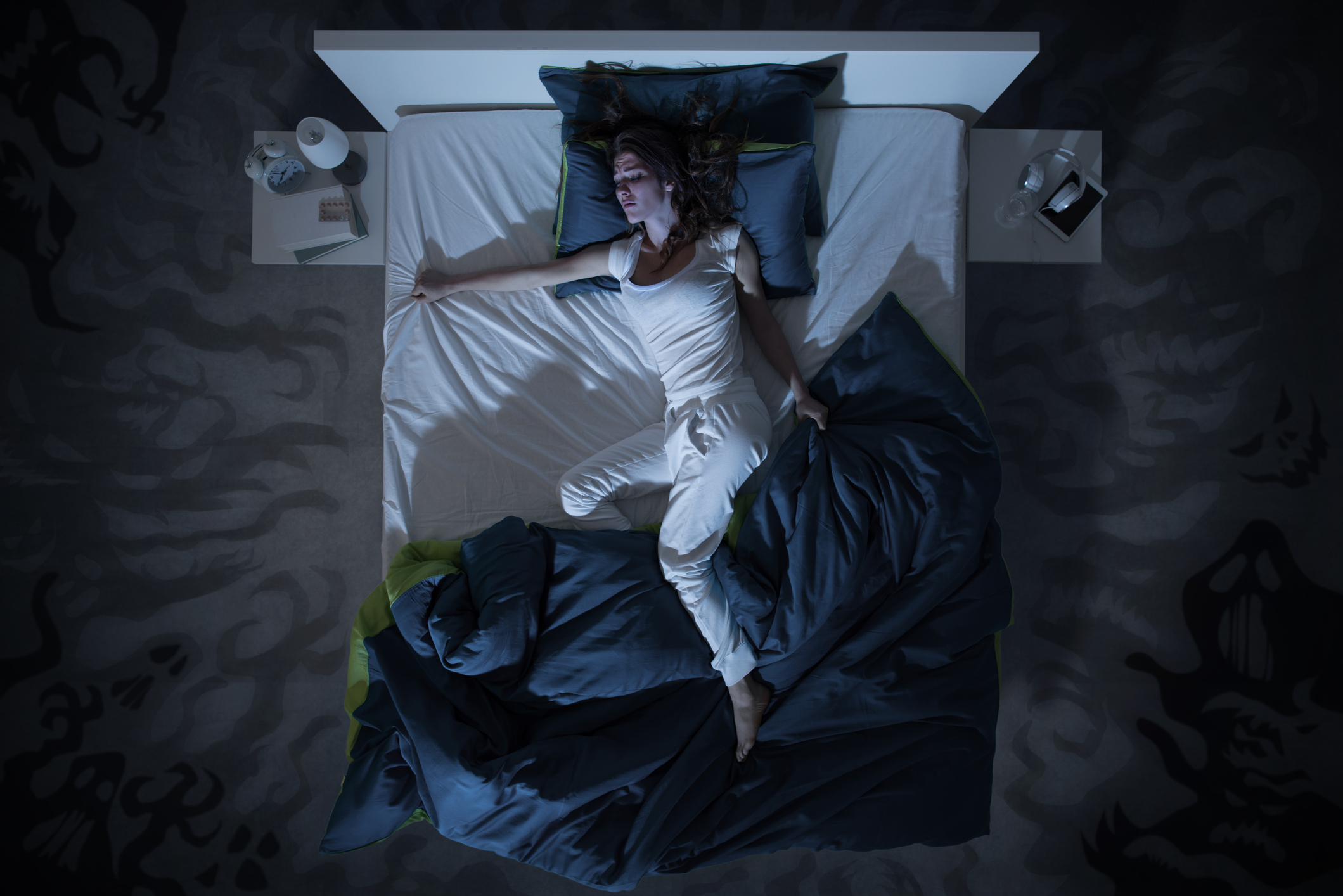How the Summer Heat Can Interrupt Your Sleep
When the temperatures start to heat up in summer, you’re probably eager to head outside to soak up the sun and enjoy the warmer weather. But when it’s time to go to sleep, that very same heat might leave you tossing and turning.
What most people don’t realize is that temperature can have a big impact on your sleep—just like light and sound. If you’ve recently begun suffering from sleep issues, take a look at your sleep environment. Your problem might be the heat!
The link between temperature and sleep
You probably know that things like caffeine intake, blue light exposure and even stress can play a role in insomnia, leaving you staring at the ceiling wishing you could sleep. But many other things can affect your sleep, too, including your environment and body temperature.
Your body temperature is actually affected by the release of melatonin—the hormone that signals to your body that it’s time to sleep. Once melatonin begins its nightly process, your body temperature starts to drop, making you cooler. In contrast, your core body temperature begins to rise in the morning, signaling your body that it’s time to wake up. These body temperature changes are regulated by your circadian rhythm—the 24-hour cycle in charge of sleep, metabolism and other bodily processes.
Experts believe that our bodies have ideal “sleeping temperatures,” or an optimal body temperature for sleep. If you’re too hot or too cold when you try to sleep, you might not be able to get rest quite as easily as you would at this optimal sleeping temperature.
Although our bodies are very good at regulating temperature, they are still affected by the temperature in the environment. When it’s hot in your bedroom, your body has a harder time keeping your core body temperature cool. This might make it harder for you to fall asleep and can even cause you to wake up more than once throughout the night.
Warm temperatures may have a greater effect on you as you age, too. The older you get, the less efficiently your body is able to regulate your body temperature. So, if it’s warmer in your bedroom, your body might not be able to keep you cool, leading to even more sleep disruption.

Tips for beating the heat
You don’t have much control over your core body temperature regulation, but you can control certain aspects of your environment! Making an effort to keep your bedroom and your body cool throughout the night can help you sleep peacefully. Here are a few tips.
- Cool the room: Do as much as you can to make your bedroom a cool and comfortable place. Ideally, the room should be between 60 and 68 degrees Fahrenheit (15.5 and 20 degrees Celsius). Air conditioning and fans can lower the temperature and improve air circulation. During the day, keep the shades or curtains closed to minimize sunlight.
- Dress for sleep: What you wear to bed can make a world of a difference when it comes to your body temperature regulation. Sleep in light, breathable fabrics like cotton, linen or silk.
- Use the right bedding: The bedding you sleep with can also affect thermal regulation. Some heavy blankets will trap heat and moisture, making you feel hotter throughout the night. Try using fewer blankets and sleeping only with a sheet. Additionally, swap your heavy winter bedding for sheets and blankets that are breathable, moisture wicking and cool.
- Take a shower before bed: This tip might require some experimentation on your part. For some people, taking a hot shower before bed can lead to a rapid drop in body temperature once they get out, forcing them to feel sleepier. For others, a lukewarm or cool shower will be more effective at lowering their body temperature. Going to bed with your hair wet can also help keep you cool as you doze off.
- Add sleep aids: Some companies sell specialized products designed to keep your pillows and bed as cool as possible throughout the night. Breathable pillows and cooling mattress toppers might give you the extra cooling boost you need to beat the heat while you sleep.
Although controlling your temperature can help you sleep more peacefully, it is only one aspect of many that can affect your slumber. Make sure you’re also paying attention to other sleep disruptors, such as light and noise in your bedroom, stress or anxiety and health conditions.
Getting better sleep often takes a multifaceted approach that’s well worth the effort. When you sleep better, you’ll be able to live a happier and healthier life.


Leave a comment